The Michael Shermer Show
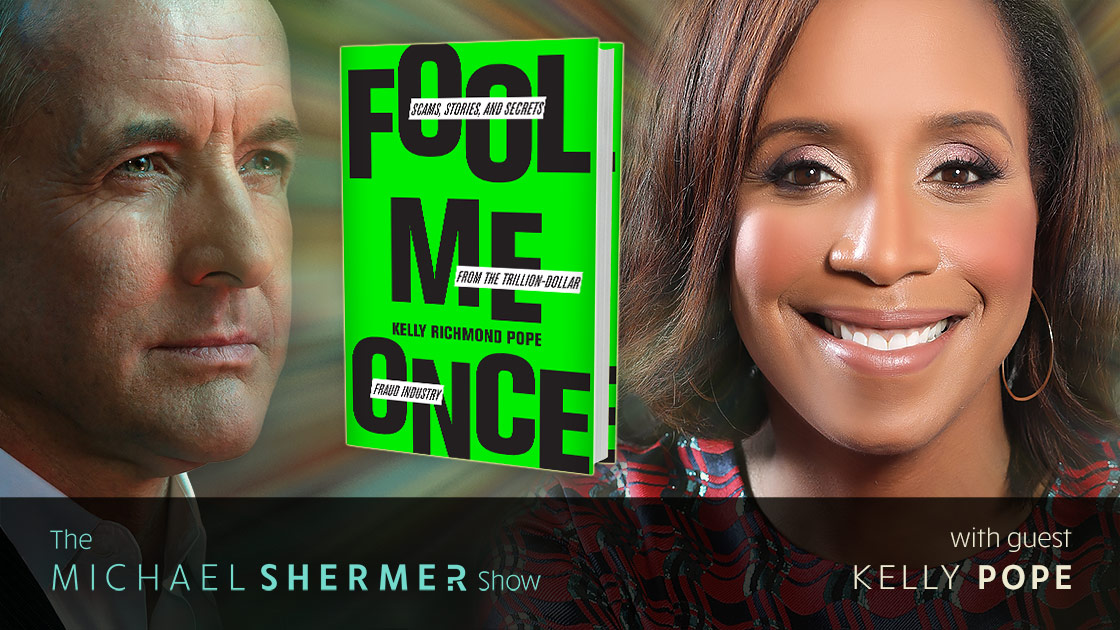
Shermer and Pope discuss: SBF and FTX • Bernie Madoff • The Tinder Swindler • gullibility • intentional perps, accidental perps, and righteous perps • innocent bystanders and organizational targets • accidental whistleblowers, noble whistleblowers, and vigilante whistleblowers • identity theft • IRS scams • doping in sports • Frank Abagnale Jr. • Edward Snowden and Julian Assange as righteous perps • Daniel Ellsberg as a noble whistleblower • Phil Zimbardo and The Lucifer Effect • how to tell if…
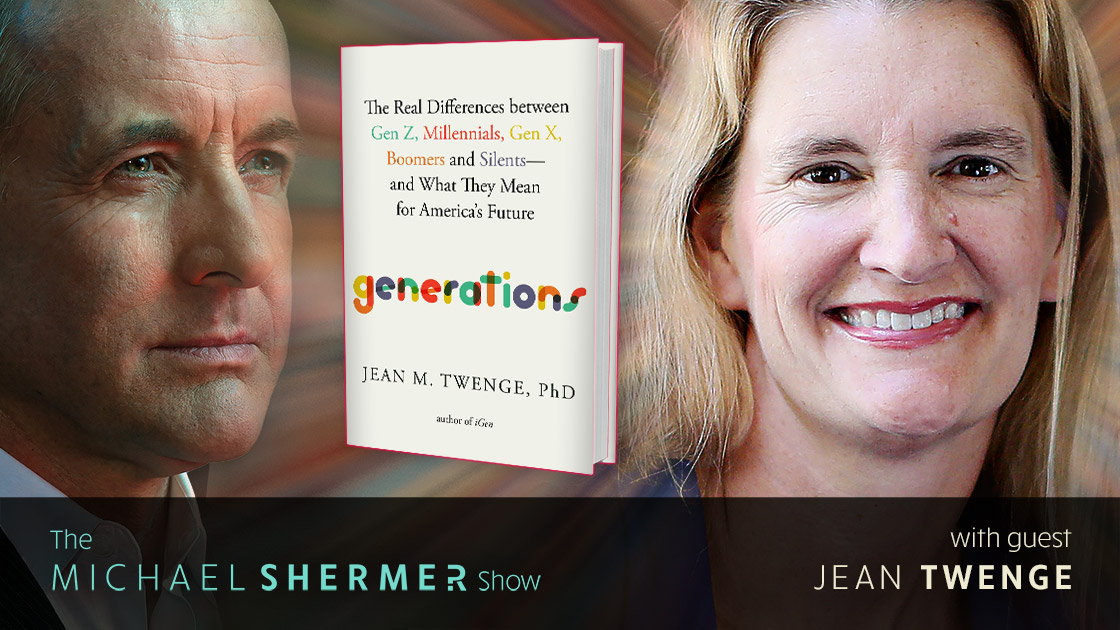
Shermer and Twenge discuss: untangling interacting causal variables (age, gender, race, religion, politics, SES, big events, slow trends, time-period effects, and generational effects) • fuzzy sets/conceptual categories • how historical events effect generations: the Great Depression, WWII, the Cold War and its end, AIDS, 9/11, The Great Recession, Covid-19, #metoo, #BLM, trans, AI • how long-term trends effect generations • technology as a driver of generational differences • civil rights, women’s rights, gay rights, trans rights • abortion and reproductive…
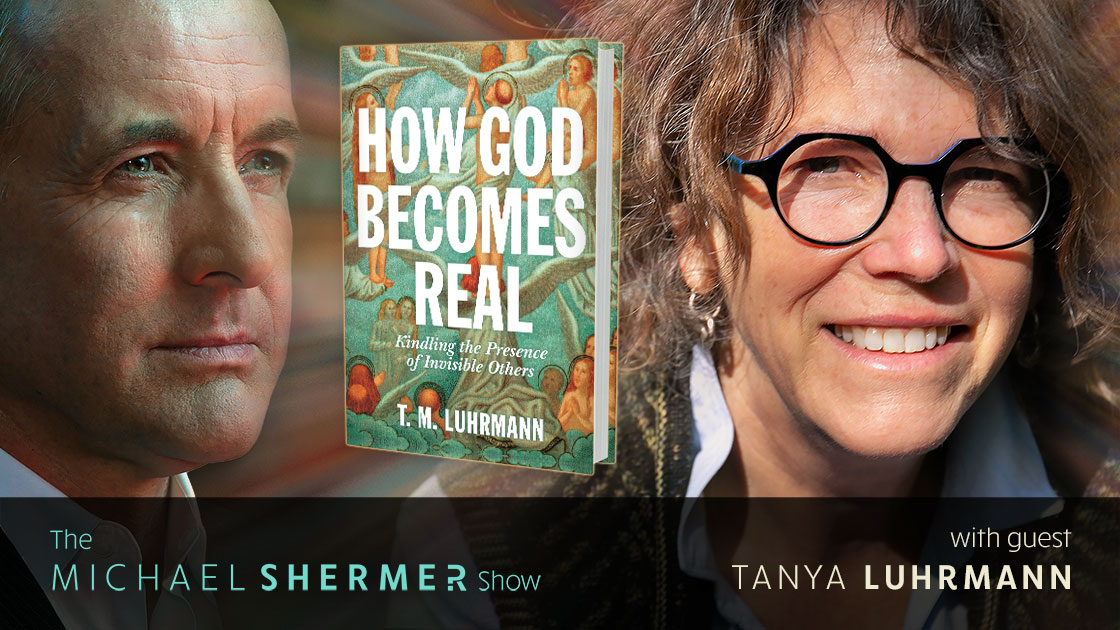
Shermer and Luhrmann discuss: the anthropology of religion • what it means when people say they “hear the voice of God” or are “walking with God” • normal “voices within” vs. hallucinations and psychoses • mystical experiences • anomalous psychological experiences • sleep paralysis and other cognitive anomalies • belief in angels and demons • absorption and religious beliefs • prayer vs. meditation vs. mindfulness • sensed presences • why people believe in God • empirical truths, religious truths, mythic truths…
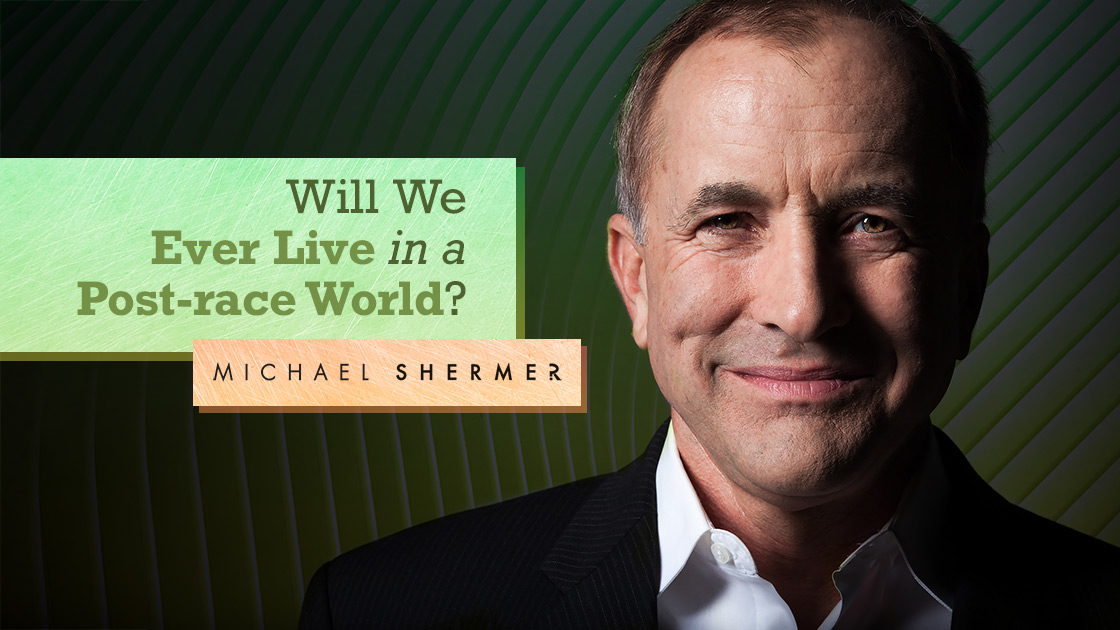
In this special episode of the podcast, Michael Shermer talks about: why race still matters and why it shouldn’t • racism • BLM (Black Lives Matter), CRT (Critical Race Theory), DEI (Diversity, Equity, and Inclusion) • Anti-bias training • the Implicit Association Test and if it measures unconscious racism • race and IQ and why such group differences are environmental and not genetic • how we can achieve a post-race world.
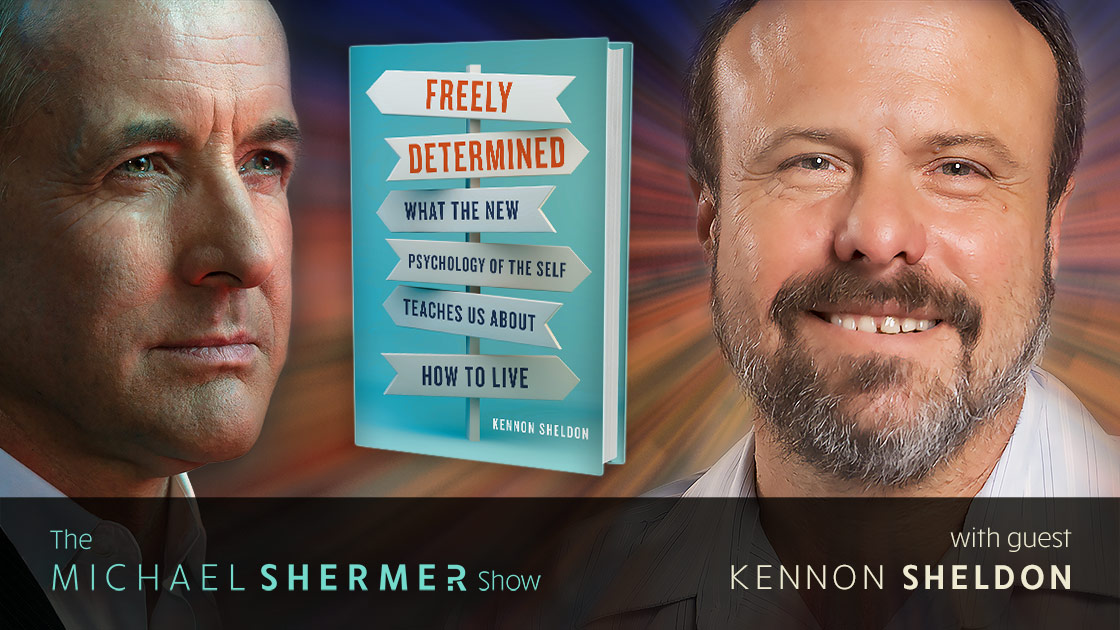
Shermer and Sheldon discuss: definitions of free will, determinism, compatibilism, libertarian free will • dualism • reductionism, materialism, predetermination, and epiphenomenalism • Christian List’s three capacities for free will • AI, Star Trek’s Data, sentience and consciousness, ChatGPT, GPT-4 • how what people believe about free will and determinism influences their behaviors • the case for hard determinism • brain injuries, tumors, addictions, and other “determiners” of behavior • emergence • symbolic self • System 1 vs. System 2 thinking • Experiencing Self vs.…
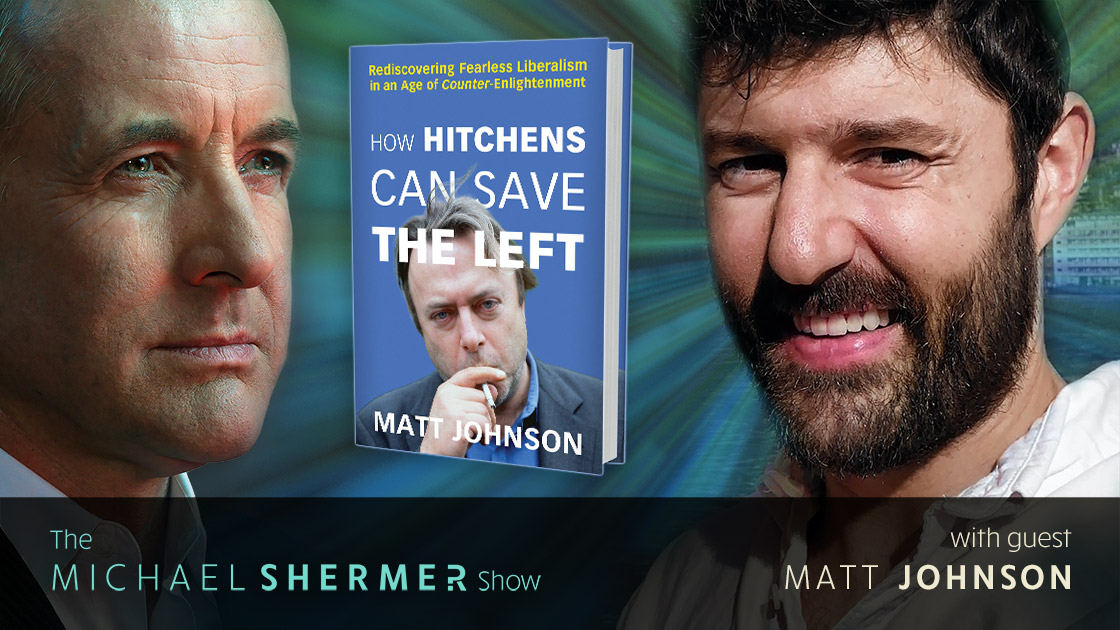
Shermer and Johnson discuss: Hitchens on free expression, identity politics, radicalism, interventionism, authoritarianism, patriotism, internationalism, America and Liberalism, reparations, religion, and death • identity politics • hostility to free speech • why Hitch did not become a neoconservative, warmonger, or imperialist • Enlightenment Liberalism • Trump and the division of the right • Hitchens on the precursors to Trump • Putin and Russian nationalism.

Dr. Shermer comments on current events surrounding trans matters and reads his in-depth essay on the subject, originally published as one of his regularly Skeptic columns on Substack.
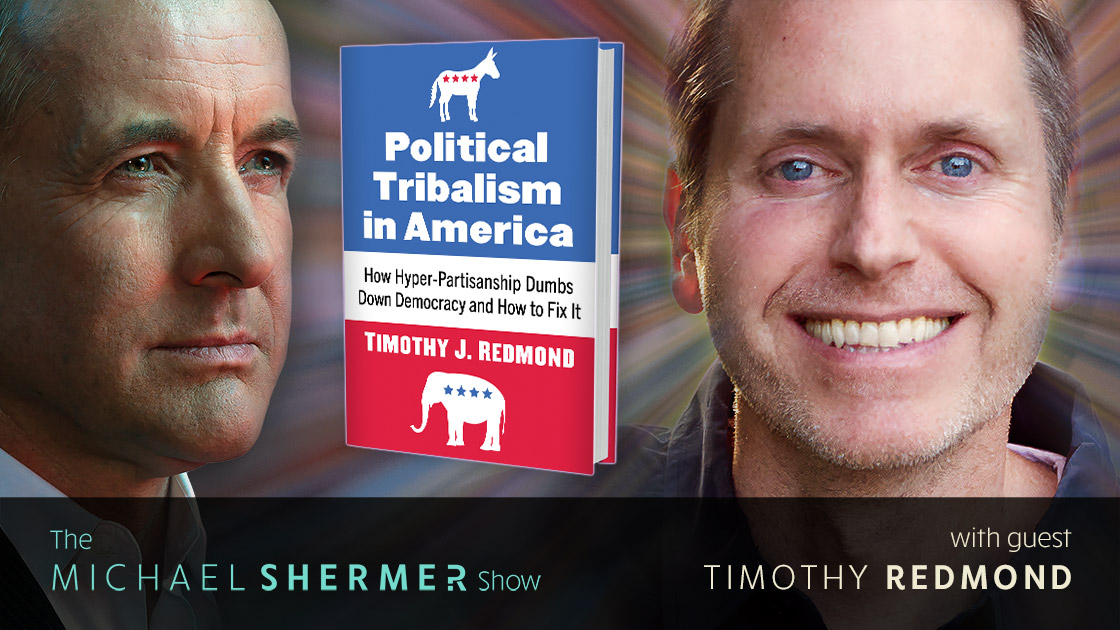
Shermer and Redmond discuss: why we have political duopoly (Duverger’s law) • parties vs. policies • Are we living in a post-truth, fake-news, alternative facts world? • How do we know political polarization is worse now than in the past? • acquiring, perceiving, and evaluating political information • evaluating: false political information, political numbers and arguments, claims of rigged election • whataboutism • cognitive responsibilities of citizenship • cognitive biases • political polarization • myside bias • numeracy vs. innumeracy…

Shermer and Fridland discuss: Okay, Boomer language • accents • ChatGPT • gender pronouns • gender differences in language use • forensic language analysis • evolution of language • why children learn language naturally but must be taught to read and write • literature, film, and TV’s influence on language use • cancel culture and taboo language • language and identity politics • y’all, contractions, and other language shortcuts • tracking human migrations by language, and vice versa • Fargo,…
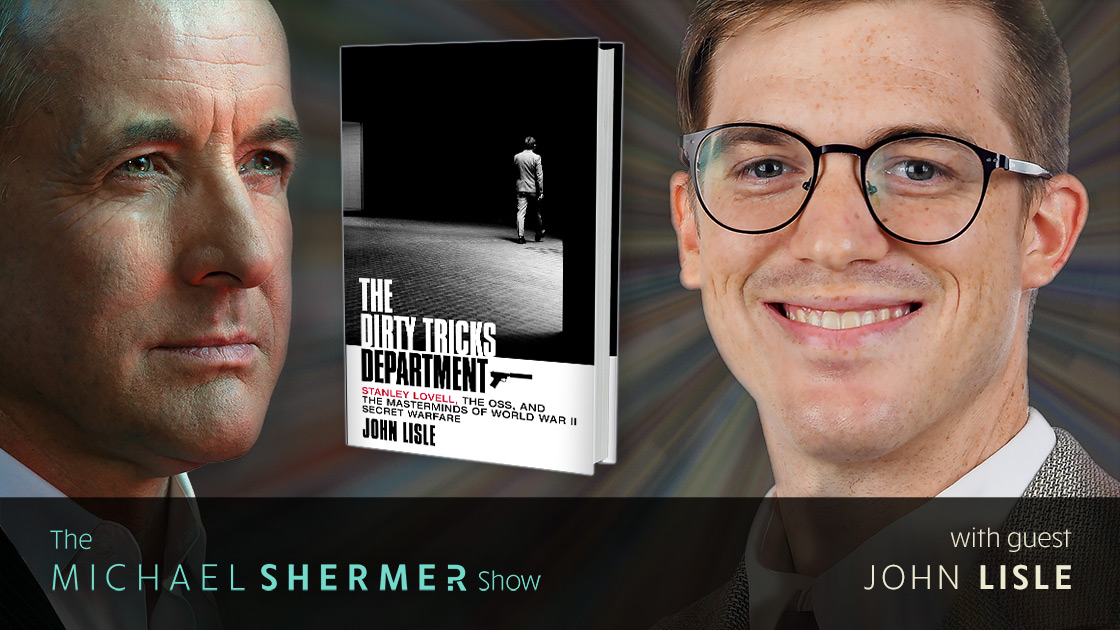
Shermer and Lisle discuss: • why countries have spy agencies • from COI to OSS to CIA • Wild Bill Donavan • Stanley Lovell as Professor Moriarty • Vannevar Bush • Division 19 • George Kistiakowsky and the Aunt Jemima explosive weapon • cat bombs, bat bombs, rat bomb, suicide pills, fighting knives, silent pistols, camouflaged explosives, A-pills, B-pills, E-pills, L-pills • psychological warfare • heavy water and nuclear weapons • Werner Heisenberg, Moe Berg, and Carl Eifler • biological…
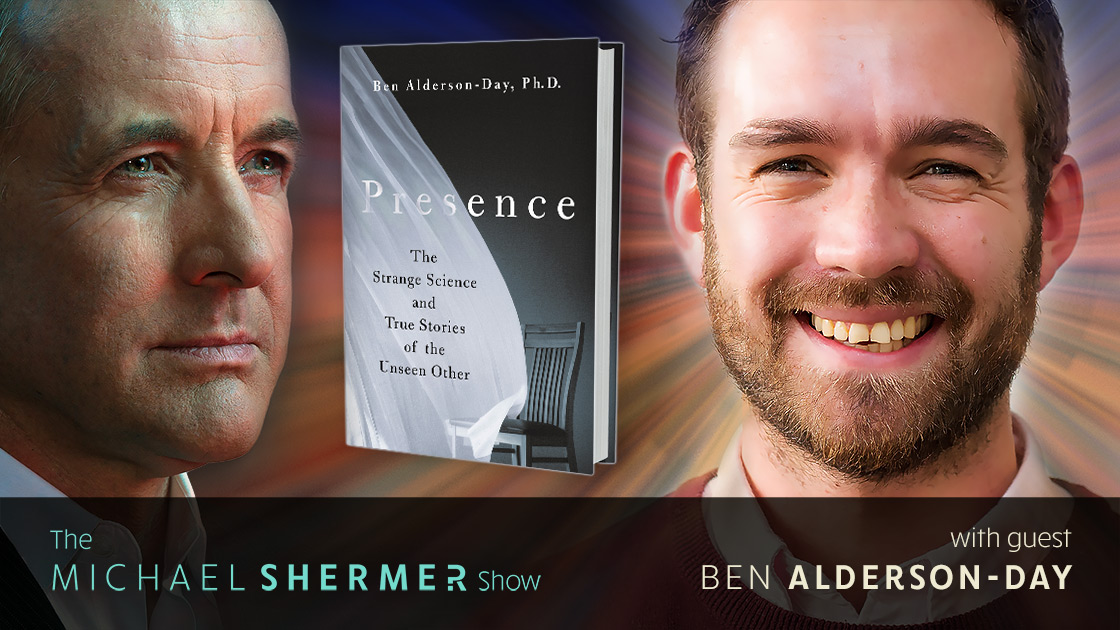
Shermer and Alderson-Day discuss the psychologist’s journey to understand the phenomenon of sensed-presence: the disturbing feeling that someone or something is there when we are alone. Using contemporary psychology, psychiatry, neuroscience, and philosophy, Alderson-Day attempts to understand how this experience is possible. Is it a hallucination, a change in the brain, or something else? The journey to understand takes us to meet explorers, mediums, and robots, and step through real, imagined, and virtual worlds.

Shermer and the Posners discuss: the nature and banality of evil • Are we all potential Nazis? • Mengele, Eichmann, Himmler, Hitler • The Pharmacist of Auschwitz • the Holocaust • the Stanford Prison Experiment • Milgram’s shock experiments on obedience to authority • Abu Ghraib and other war crimes • restorative justice • the opioid crisis • the Vatican and the future of Catholicism.
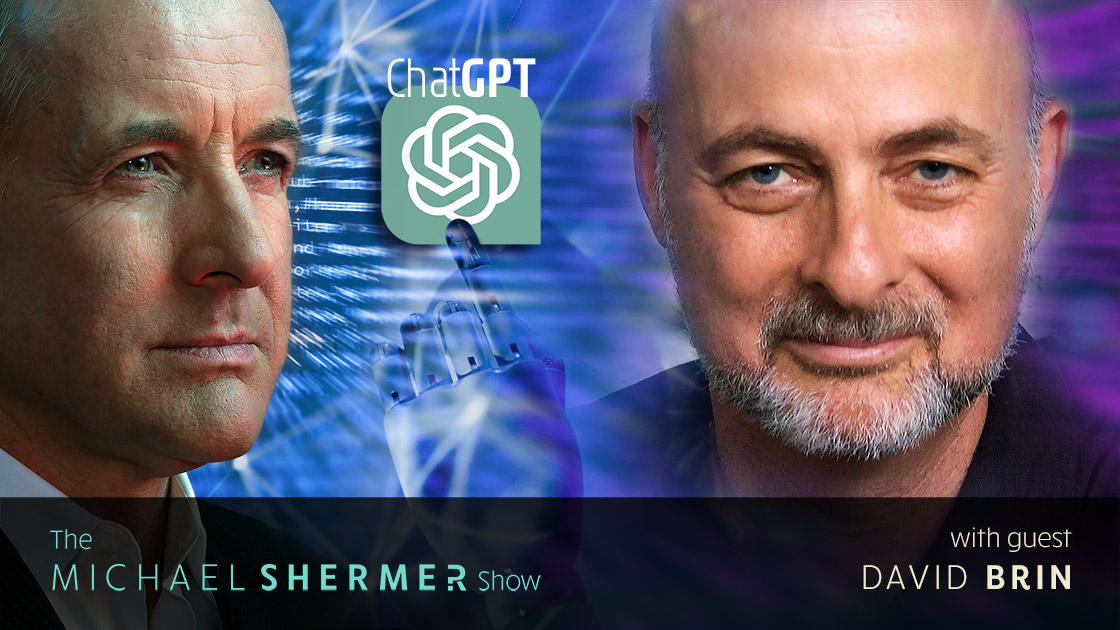
Shermer and physicist, science fiction author, and AI expert David Brin discuss: AI and AGI • are they existential threats? • the alignment problem • Large Language Models • ChatGPT, GPT-4, GPT-5, and beyond • the Future of Life Institute’s Open Letter calling for a pause on “giant AI experiments” • Asilomar AI principles • Eliezer Yudkowsky’s Time OpEd: “Shut it All Down” • laws and ethics.
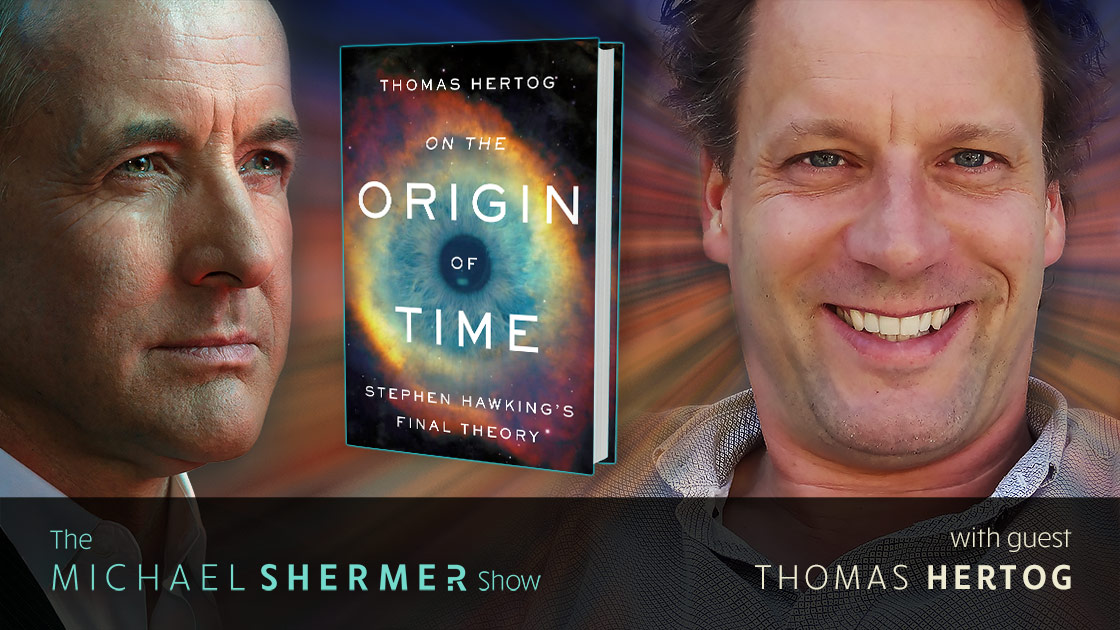
Shermer and Hertog discuss: what it was like working with Stephen Hawking • Darwinian model of cosmology • time • What banged the Big Bang? • cosmic inflation and multiple universes • how to reconcile Einstein’s relativity theory of gravity and quantum theory • Hawking’s no-boundary theory • why the universe appears designed • Feynman’s sum over histories approach to quantum physics • Is there purpose in the cosmos? • Why is there something rather than nothing?
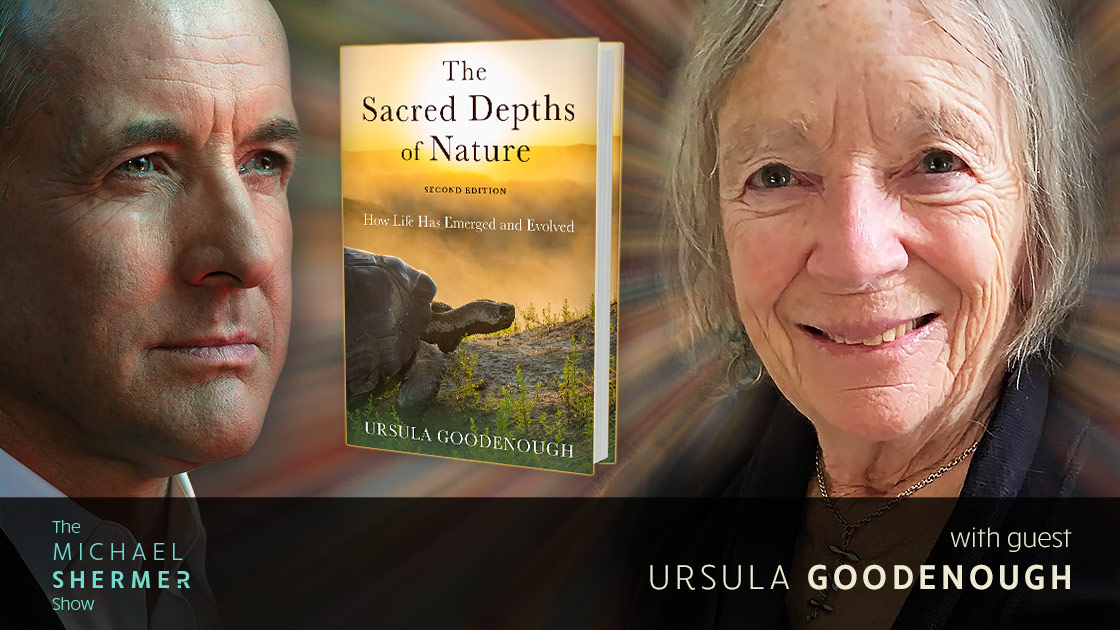
Shermer and Goodenough discuss: origins of her personal beliefs • origins life, RNA, DNA, consciousness, language, morality • myths and religions • what it means to be “religious” • religious naturalism • where the laws of physics came from • why the universe seems so strange • chance and evolution • fine tuning of the cosmos • autocatalysis and emergence • purpose of religion • ethics and morality without religion.

Shermer and Hecht discuss: awe and wonder • science and religion • the new atheists • humanism and atheism • secular Judaism • replacing religion, with what? • the original meaning of liturgy and why it’s still important • rituals for atheists • how to cope with loss, death, and grief • what to say at weddings and funerals • Alvy’s Error (the universe is expanding but Brooklyn is not) • what we do in the hear-and-now matters, whether or…

Shermer and Ehrman discuss: Ehrman’s religious journey • Who wrote the Bible and why? • how to read the Bible and the book of Revelation • Who wrote Revelation and why? • why Jesus spoke in parables • why worry about climate change if the world is going to end soon? • David Koresh and Waco • Reagan and end times politics • how Jesus became a capitalist and militarist • faith healers, televangelists, and other Christian con artists • Christian ethics and what Jesus really said about the poor…
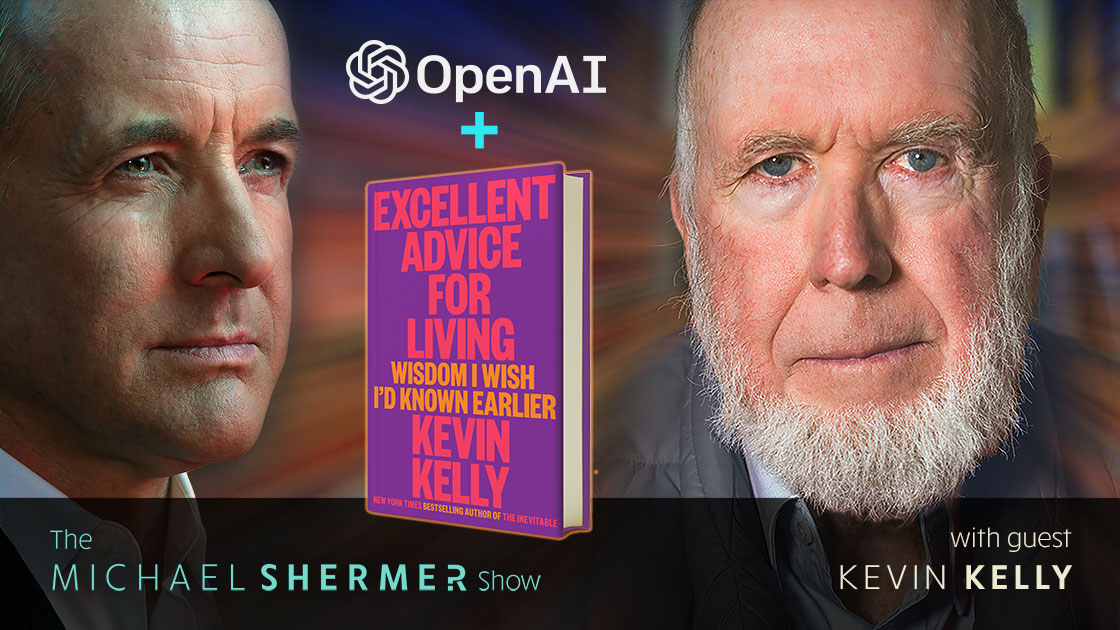
Shermer and Kelly discuss: protopian progress • ChatGPT • artificial intelligence; an existential threat? • evolution • cultural progress • self-driving cars • innovation • social media • putting an end to war • compound interest and the long term effect of small changes • why you don’t want to be a billionaire • beliefs and reason • setting unreasonable goals • persistence as key to success • probabilities and statistics, not algebra and calculus • investing: buy and hold • how to fully become yourself.

Amanda Knox spent four years in an Italian prison for a crime she did not commit. In the fall of 2007, the 20-year-old college coed left Seattle to study abroad in Italy, but her life was shattered when her roommate was murdered in their apartment. After a controversial trial, Amanda was convicted and imprisoned.
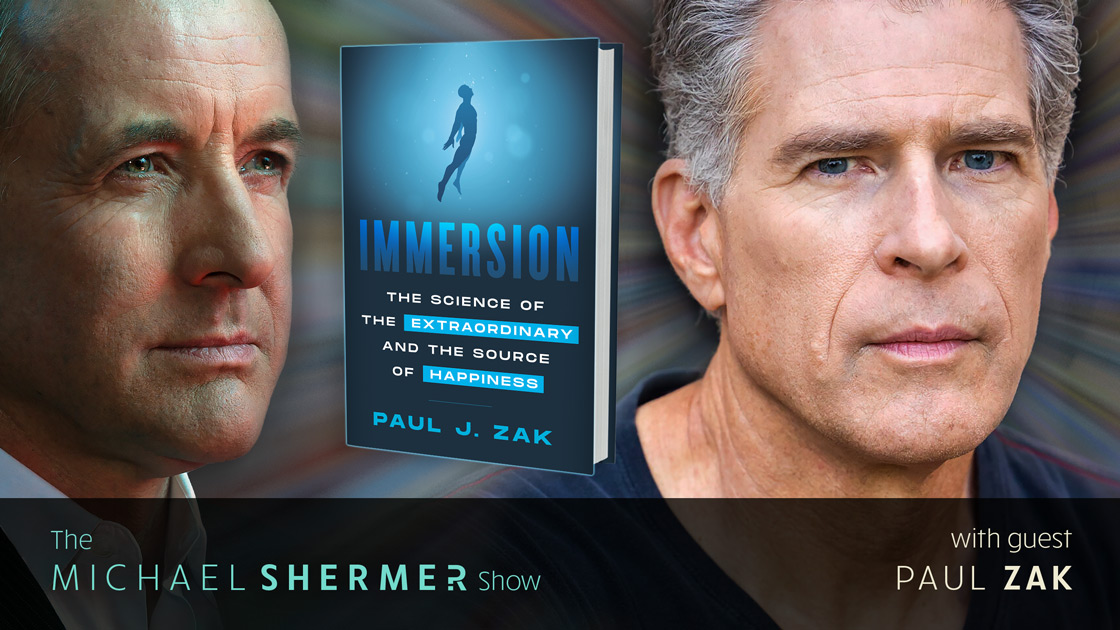
Shermer and Zak discuss: neuroeconomics, neuromanagement, and neuromarketing • Zak’s work with the CIA and DARPA • immersion and how is it quantified (with a formula) • monotony of the mundane • the ordinary and extraordinary • peak-end storytelling • immersion in advertising, entertainment, education, attractions, marriage, and retail • what makes a great movie or successful unscripted TV show • novelty • sensitivity training programs • how to give a TED talk • immersion and political candidates • The…
← PREVIOUS
NEXT →






























